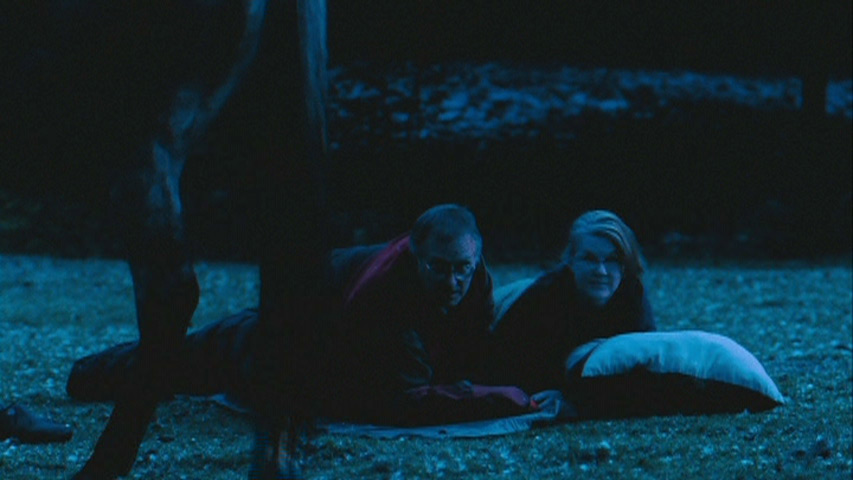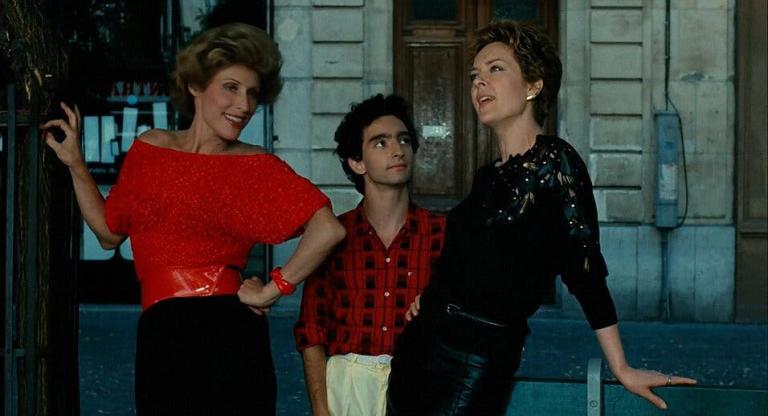Robinson Devor and Charles Mudede’s poetic docu-fiction hybrid Zoo (2007) explores a real incident that occurred about an hour outside Seattle in Enumclaw, a bucolic spread of farmland in the shadow of Mount Rainier. One night in 2005, after being anonymously dumped at an emergency room, a 45-year-old Boeing engineer named Kenneth Pinyan died of internal injuries that he suffered from being penetrated by a horse. The investigation led to the discovery of a network of men—self-described “zoos” (short for “zoophiles”)—who thought they were alone in their sexual fixation until they met others like them on the Internet. Bestiality not being illegal in Washington at the time, the zoos would gather semi-regularly on a Enumclaw farm to listen to music, make boozy frozen drinks, and yes, initiate sex with horses.
Devor and Mudede, who had previously worked together on Police Beat (2005)—a crime drama inspired by Mudede’s police blotter column in the Seattle newspaper The Stranger—used Mudede’s in-depth journalism around the Enumclaw case as the basis for the project. In contrast with the news media’s salacious and derisive response to the death, the pair opted to present the incident with seriousness and open-mindedness. The three audio interviews they conducted with zoos within Pinyan’s group (identified only by their online handles) provide narration for re-enactment sequences that are more impressionistic than forensic, filmed in a visual language that’s reminiscent of cinematographer Robert Chappell’s work with Erroll Morris.
Pinyan was mysterious even to the men with whom he shared his ultimate secret, and the limited portrait the zoos, and by extension, the filmmakers, are able to paint of him feels fragmentary and almost surreal. While Sean Kirby’s evocative Super 16 cinematography predicts the style of many “high-brow” true crime documentaries to come, Zoo doesn't adhere to the genre’s familiar conventions. There are no talking-head experts explaining the psychology of zoophiles, no anthropologists recounting the cultural history of bestiality, and no detectives who provide an information dump to sift through and discuss. Not only does the film raise more questions about Pinyan than it answers, it makes the whole world around him seem more alien. And yet Devor and Mudede reach out to understand something about this group that most people don’t even want to acknowledge exists. What they locate is mostly sadness.
This inquisitiveness is perhaps best articulated by Jenny Edwards, the founder of a local horse rescue organization, who was tasked with locating and collecting the horses that lived on the notorious farm. She describes her close connection to horses, whose company provided her with almost familial comfort while she was undergoing cancer treatment. She is repulsed when she learns about what happened in Enumclaw, as are other members of the farming town who feel closeness, even emotional intimacy, with the horses and see the zoo community as committing the ultimate sin in their world. Even so, Edwards acknowledges that she has since done her work to try and fathom where the zoos are coming from. Echoing what appears to be the point of the filmmakers’ project in the first place, Edwards says, “It was really interesting to me to learn that there are people who really have a love relationship for an animal not of their species. These people were talking about the extreme and loving care that they give their animal partner….I don’t yet quite know how I feel about that, but I’m right at the edge of being able to understand it.”
Zoo screens tonight, June 17, and on June 28, at Spectacle as part of the series “Green Gothic: The Pacific Northwest Cinema of Devor and Mudede.” Charles Mudede and Robinson Devor will zoom in for a virtual Q&A following tonight’s screening.



